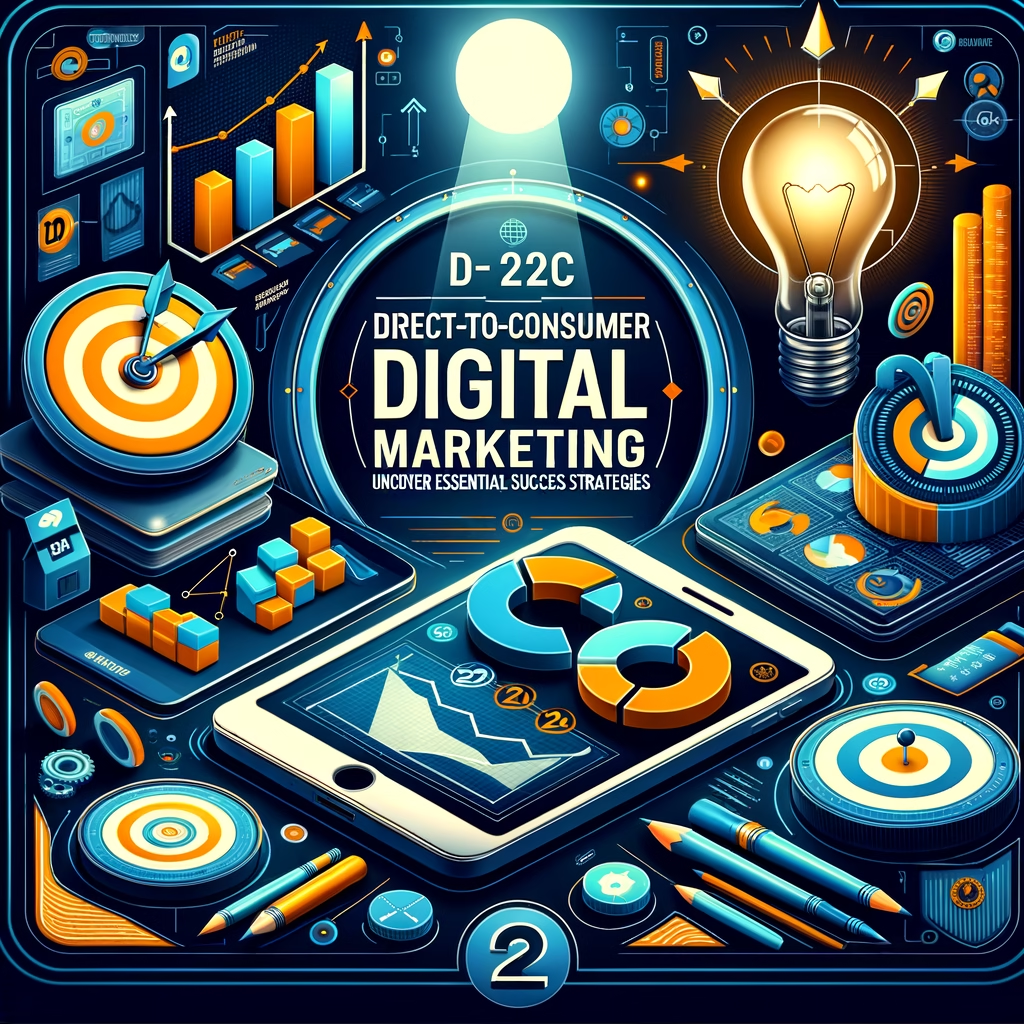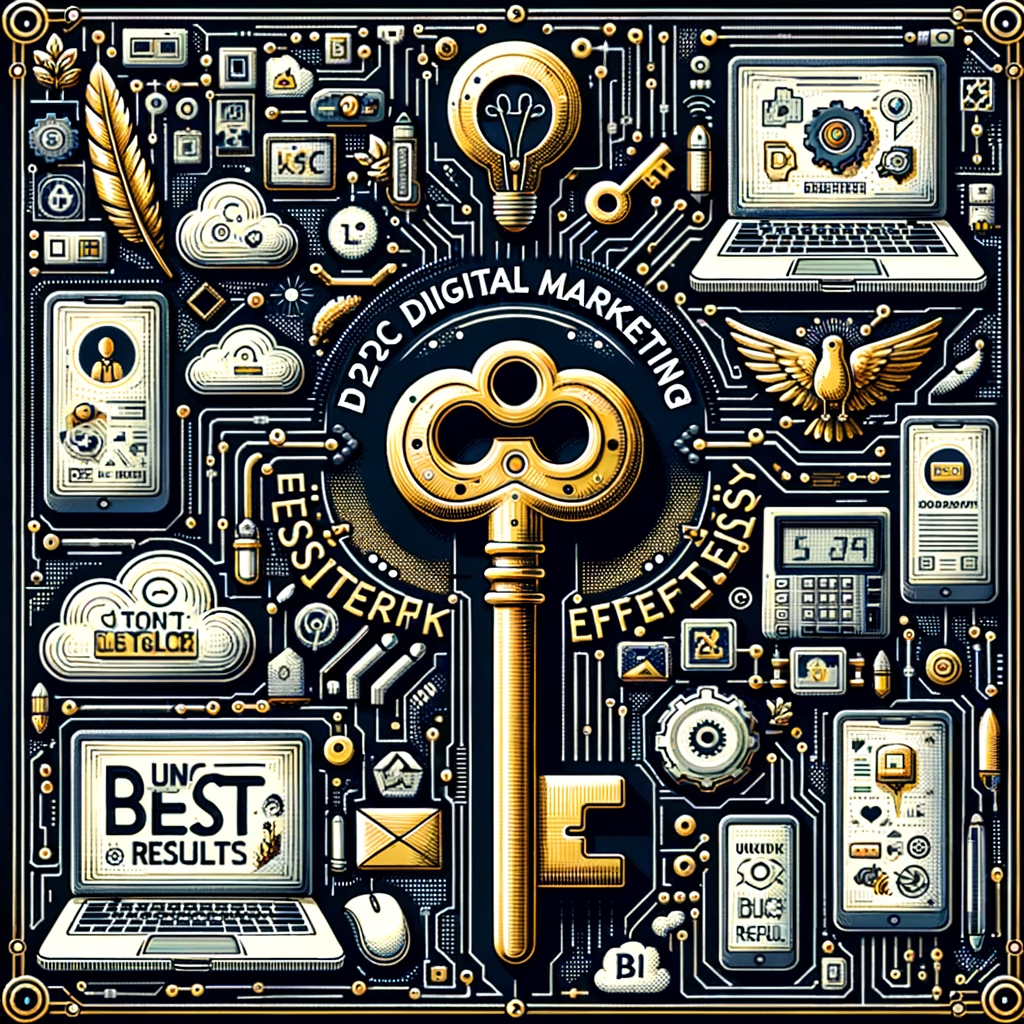- Strategies for Effortless Transformation in B2C Digital Marketing
- Understanding the Landscape
- Embrace Personalization
- Why Personalization Matters
- Tools and Techniques
- Leverage Artificial Intelligence
- AI-Powered Marketing Strategies
- Optimize for Mobile
- Mobile Optimization Best Practices
- Harness the Power of Social Media
- Effective Social Media Strategies
- Utilize Data-Driven Decision Making
- Implementing Data-Driven Strategies
- Foster Customer Loyalty
- Strategies to Enhance Loyalty
- Measure and Adjust
- Continuous Improvement Practices
- Conclusion
Strategies for Effortless Transformation in B2C Digital Marketing

Understanding the Landscape
In the realm of B2C digital marketing, transforming your strategy effortlessly isn’t just a goal—it’s a necessity. The landscape is constantly evolving, with new technologies and consumer behaviors emerging at a rapid pace. To stay ahead, businesses must adapt and refine their strategies continually. Let’s delve into some transformative strategies that can help your business thrive in this dynamic environment.
Embrace Personalization
Personalization is no longer optional in B2C digital marketing. Consumers expect tailored experiences that resonate with their preferences and behaviors. Implementing personalized marketing strategies can significantly enhance customer engagement and drive conversions.
Why Personalization Matters
Personalization fosters a connection between the brand and the consumer. It makes customers feel valued and understood, ultimately leading to increased loyalty. By leveraging data analytics and customer insights, you can deliver targeted content, offers, and recommendations that align with individual interests.
Tools and Techniques
– Customer Segmentation: Divide your audience into segments based on demographics, preferences, and behavior. This allows for more targeted communication.
– Dynamic Content: Use tools that enable you to display different content to different users based on their profile data.
– Email Personalization: Craft emails with personalized subject lines, greetings, and content to increase open and click-through rates.
Leverage Artificial Intelligence
Artificial Intelligence (AI) is revolutionizing B2C digital marketing by automating processes and providing deep insights into consumer behavior. Incorporating AI can streamline your marketing efforts and uncover new opportunities for growth.
AI-Powered Marketing Strategies
– Chatbots: Implement chatbots to handle customer inquiries instantly, improving user experience and freeing up human resources for more complex tasks.
– Predictive Analytics: Use AI to analyze past customer interactions and predict future behavior, enabling you to create more effective marketing campaigns.
– Content Creation: AI tools can assist in generating content ideas, curating personalized content, and even writing basic copy, allowing marketers to focus on strategy and creativity.
Optimize for Mobile
As mobile devices continue to dominate, optimizing your digital marketing efforts for mobile users is critical. Ensure that your website, content, and ads provide a seamless experience across all devices.
Mobile Optimization Best Practices
– Responsive Design: Implement a responsive web design that adjusts seamlessly to different screen sizes, providing a consistent user experience.
– Fast Loading Times: Mobile users expect quick access to information. Optimize images, scripts, and server response times to improve page load speed.
– Mobile-Friendly Content: Create content that is easy to read on smaller screens. Use short paragraphs, bullet points, and compelling visuals to keep users engaged.
Harness the Power of Social Media
Social media platforms are vital channels for B2C digital marketing. They provide opportunities for brands to engage with customers, build communities, and drive traffic to their digital properties.
Effective Social Media Strategies
– Platform Selection: Choose platforms that align with your target audience. Understand where your customers spend their time and tailor your strategies to those channels.
– Engaging Content: Share content that resonates with your audience, encourages interaction, and reflects your brand values.
– Influencer Collaborations: Partner with influencers who share your target demographics. Influencer marketing can amplify your reach and enhance brand credibility.
Utilize Data-Driven Decision Making
Data is the backbone of modern marketing strategies. By harnessing the power of data, you can make informed decisions that optimize your marketing efforts and improve ROI.
Implementing Data-Driven Strategies
– Analytics Tools: Use tools like Google Analytics, social media insights, and third-party software to track and analyze performance metrics.
– A/B Testing: Conduct experiments to determine the most effective strategies by comparing different marketing approaches.
– Customer Feedback: Collect and analyze feedback to identify areas for improvement and opportunities for innovation.
Foster Customer Loyalty
Building and maintaining customer loyalty is essential for long-term success. Loyal customers are more likely to repeat purchases, refer new customers, and advocate for your brand.
Strategies to Enhance Loyalty
– Loyalty Programs: Implement rewards programs that encourage repeat business and incentivize referrals.
– Exceptional Customer Service: Provide outstanding customer service experiences that exceed expectations and build trust.
– Engagement and Community Building: Foster a sense of community through exclusive events, online forums, and personalized communication.
Measure and Adjust
No transformation effort is complete without a feedback loop. Continuously measure the impact of your strategies and make necessary adjustments to stay aligned with your goals.
Continuous Improvement Practices
– Regular Audits: Conduct regular audits of your digital marketing efforts to identify areas for improvement and ensure alignment with business objectives.
– Performance Metrics: Establish clear KPIs and closely monitor progress towards achieving them.
– Agility: Be prepared to pivot strategies quickly in response to changing market conditions or new insights.
Conclusion
Transforming your B2C digital marketing strategy doesn’t have to be a daunting task. By embracing personalization, leveraging AI, optimizing for mobile, tapping into social media, utilizing data-driven decision-making, fostering customer loyalty, and continuously measuring and adjusting your strategies, you can ensure a powerful, effortless transformation. Stay proactive, stay informed, and watch your marketing efforts flourish in the ever-changing digital landscape.



